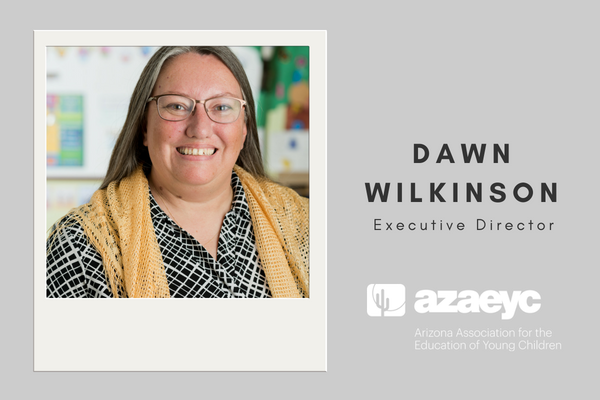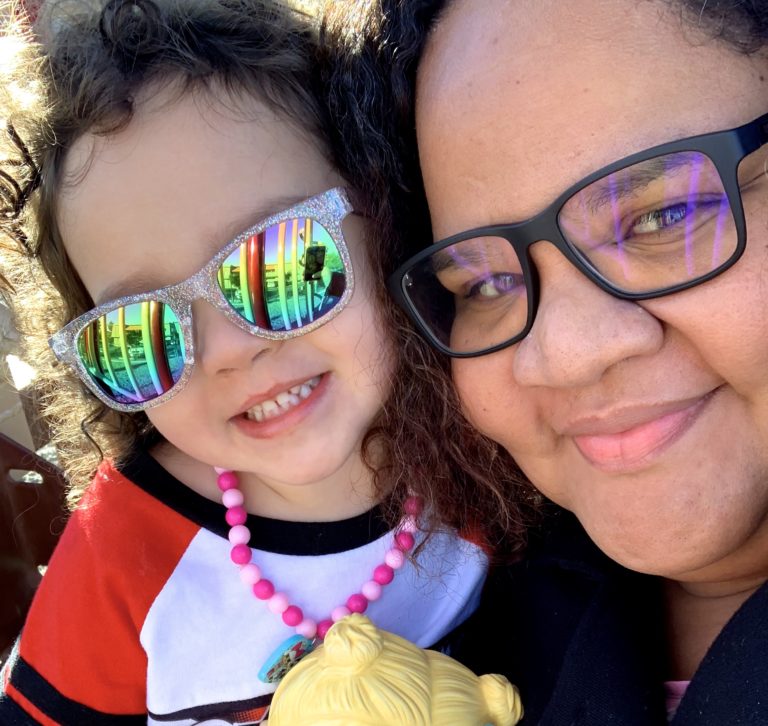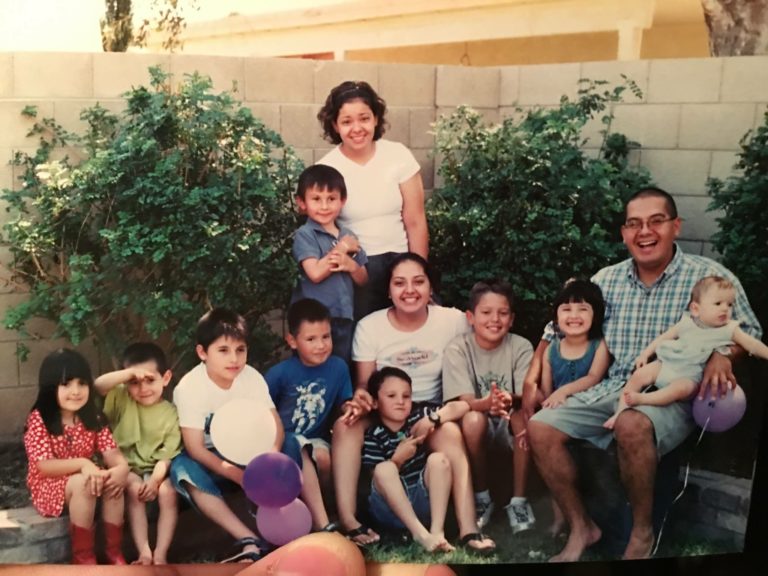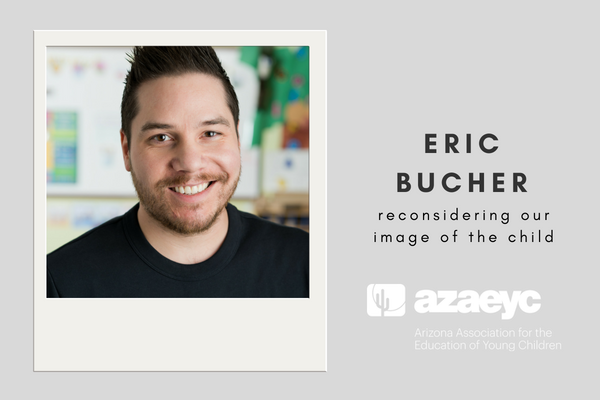By Dawn Wilkinson | August 17, 2018
As my first summer as AzAEYC Executive Director winds down, two words come to mind: equity and diversity.
I’ve had several terrific opportunities over the past few months to join conversations focused around the importance of these words. Discussions around the concepts of equity and diversity are critical to those of us in this profession.
Often, these discussions cause feelings of disequilibrium.
We may pause, reflect on our actions, our opinions, our backgrounds…and then find ourselves questioning, wondering, doubting ourselves and even feeling confused.
In our role as early childhood educators, disequilibrium is a familiar concept. We support children as they experience their own states of disequilibrium. We support them during Piaget’s pre-operational stage where they cannot view the world from another child’s point of view. Still, they are very curious, and question the world.
Do we, as adults, revert to a state of egocentrism when the concepts of equity and diversity are a topic of discussion? When we dampen our own curiosity, refrain from asking questions, and avoid listening to our colleagues’ stories, do we shut down other points of view? We support children through these phases. How can we support each other when it comes to cooperating in the adult sandbox?
The growth that can come from this state of disequilibrium can be of great value. As we plan for the future of AzAEYC, my world has been widened and my intentions are in focus. Here are a few reflections on what I’ve learned.
Respecting our strengths
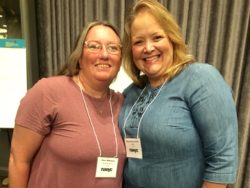
NAEYC’s Professional Learning Institute (PLI) in June was a powerful start to exploring the topics of equity and diversity in early childhood education. Dr. Sonia Nieto’s opening plenary session,
Creating Inclusive and Affirming environments for Emergent Bilingual Children set the tone for a compelling conference. A conscious awareness of the importance of equity and diversity is, of course, extremely important for bilingual children. Yet another takeaway I experienced from PLI is this: It is important to strive to create inclusive and affirming environments everyday in every situation we encounter.
Much of my time at PLI was spent getting to know the NAEYC staff and the leadership of the other state affiliates. Though each state is unique in culture and demographic makeup, we all deal with common issues. Together, state affiliate representatives created an inclusive and affirming environment. We supported each other and learned much about equity and diversity issues, sharing our successes and struggles.
Listening to the stories
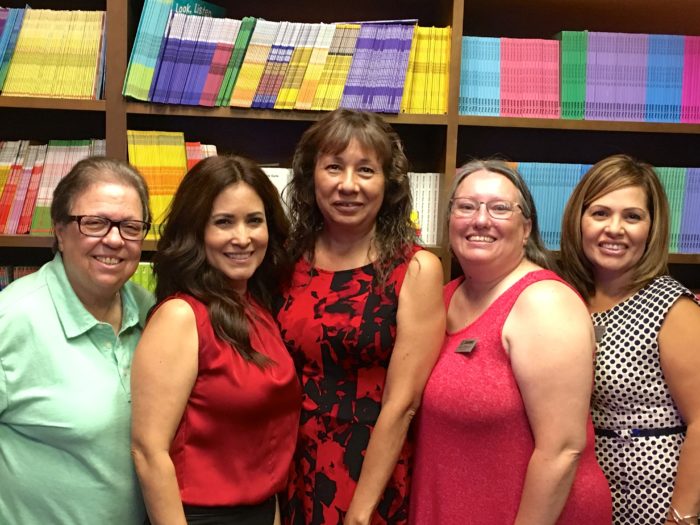
On June 19th, I attended the Yuma Chapter of AzAEYC’s Board meeting. Getting to know this group was a pleasure, and I was fascinated as they shared stories of what they have learned by working with families who have migrated to the United States to live in their community.
They’d observed that first generations stay close to the border. Then, with each generation, a family may move further north and they start the assimilation process. They begin speaking more English and less Spanish. As families grow through generations, they are drawn to American culture and systems, often growing away from their native cultures and traditions. Multigenerational transitions make Yuma a distinctive and tradition-filled area of Arizona. I look forward to working with the dedicated board members of the Yuma Chapter of AzAEYC who supported the NAEYC mission in the Yuma area.
Advocating together
This summer, NAEYC released the first draft of the Advancing Equity and Diversity in Early Childhood Education position statement. This statement outlines the professional obligations of early childhood educators to create equitable learning opportunities for young children.
Equitable learning opportunities help children thrive by building on each child’s unique set of individual and family strengths, cultural background, languages, abilities, and experiences. It’s challenging: many structural and institutional inequities in society remain unresolved. These inequities—and the social forces that reinforce them—reflect dominant social preferences and their intersection across characteristics.
As a result, certain groups are accorded more privilege than others. NAEYC’s position statement seeks to promote broader understandings of the structural inequities in our society and the negative impacts they have on children’s development and learning in early childhood education. We must be intentional in advocating for support for early childhood educators in creating equitable learning opportunities.
Addressing difficult issues around equity and diversity
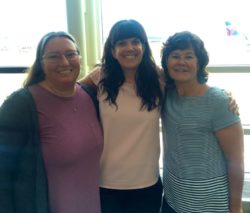
To wrap up the summer, I attended the NAEYC Leadership Summit: Advancing Equity and Diversity along with SAzAEYC Executive Director Kelly Larkin and Vickie Young-Chiverton. Attendees reflected on our personal experiences and our unconscious bias. In order to move past our unconscious biases, we explored why we must first acknowledge that these biases exist.
Addressing these issues together with open conversations is the only way to truly move forward. Ignoring difficult, “non-discussible” issues does not mean that they go away. They can grow deeper, and be more hurtful.
As we continue to build AzAEYC, I want to continue to address these tough issues and make sure that we are creating an inclusive and affirming environment.
Join the conversation
I want to listen to you, visit your programs/areas, and explore how we can work together to improve the early childhood community. At the local, state and national levels I will be an advocate for policies and initiatives that provide support for early childhood educators and share your stories with leaders.
Our strength as an organization is in our members, providing opportunities for members to form relationships and make connections is vital to the growth of AzAEYC. As our organization grows, there will be topics that may be difficult for us to discuss. Yet we must be open to continuing the equity and diversity conversation, and accept that sometimes, disequilibrium will occur.
Join me in growing AzAEYC as an inclusive and affirming organization where every member feels welcomed and supported; where we celebrate our diversity and learn from each other. Let’s continue the conversation on Saturday, September 29th at Rio Salado Community Conference Center — see you at the AzAEYC Annual Meeting!
Dawn Wilkinson is the Executive Director of AzAEYC.

